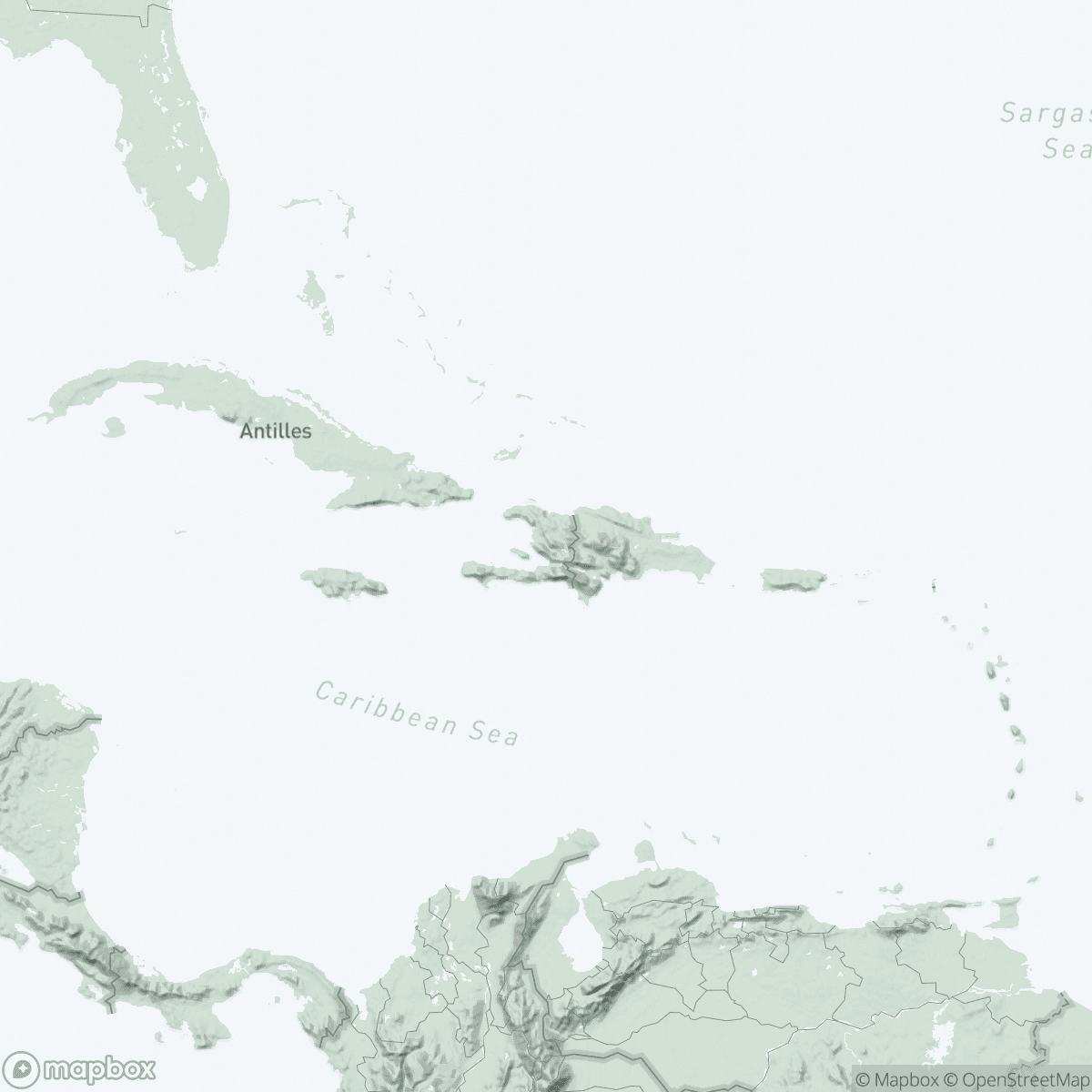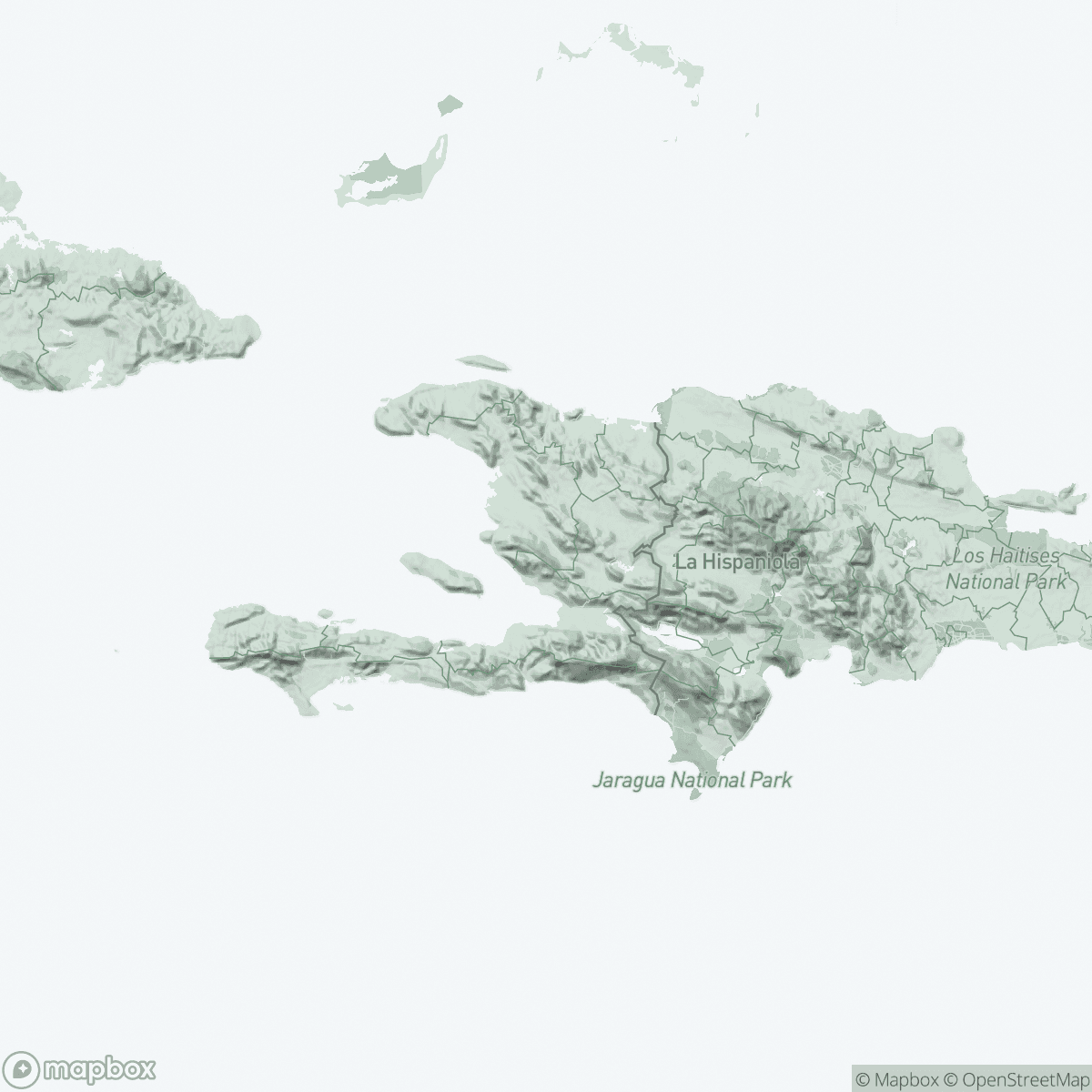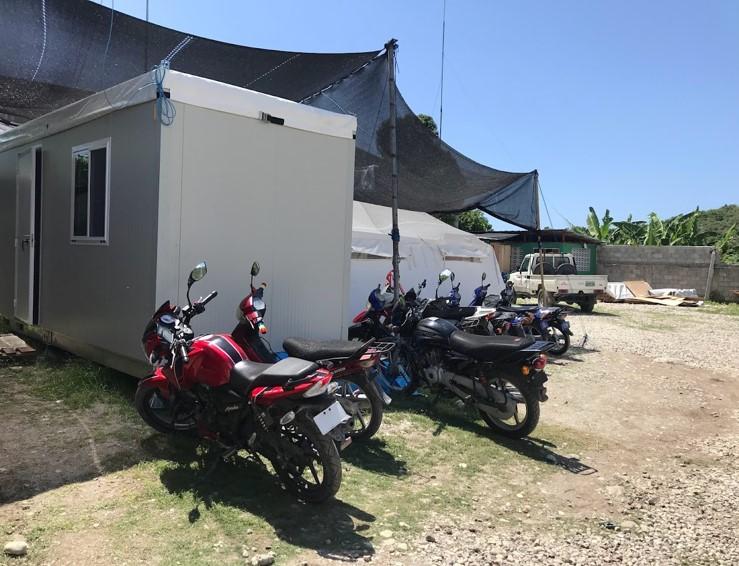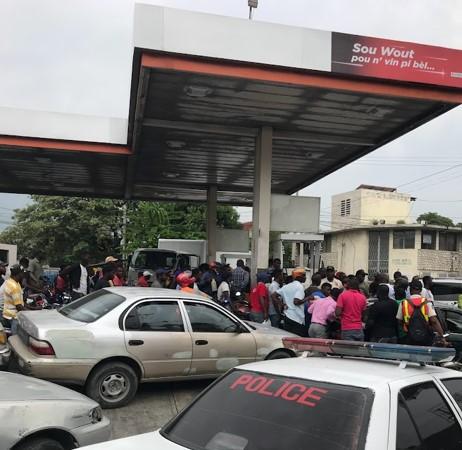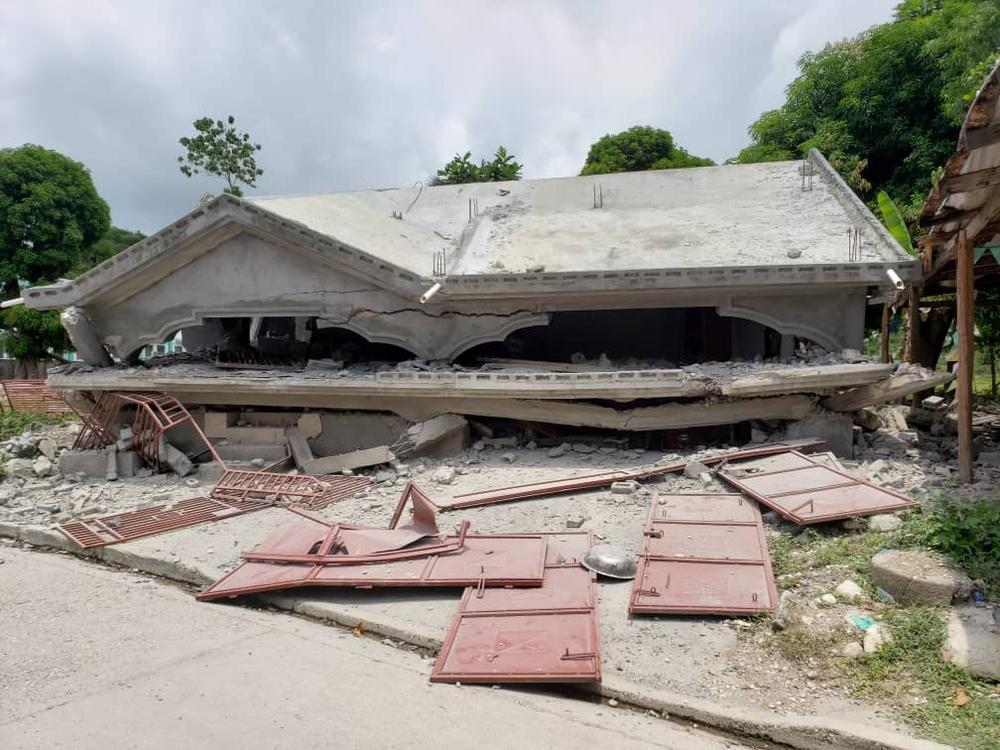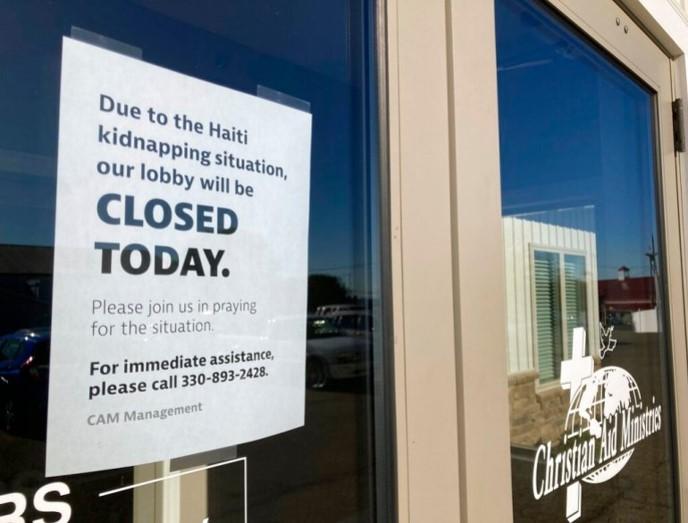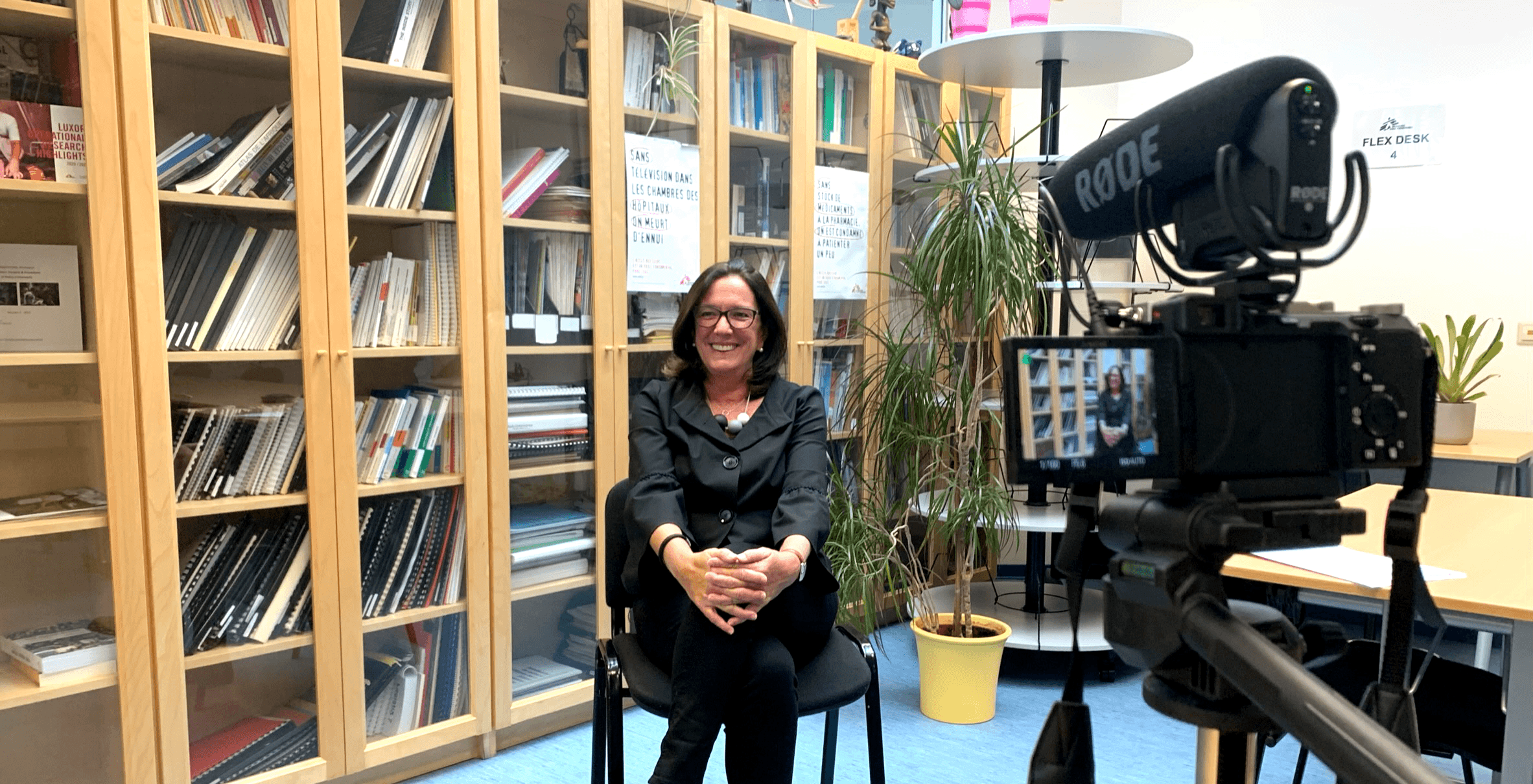
Tension and chaos after the earthquake: “The situation was like nothing I had seen before”
In 1 click, help us spread this information :
A mission like no other
MSF staff member in Luxembourg since 2017, she has always been interested in going to the field to see first-hand the work that MSF does and better understand its diversity. Debra had been to Africa several times with another NGO, but the situation in Haiti was unlike anything she had seen before.
I was a bit shocked about the situation, it was a lot more difficult than I thought it would be”, she admits. When I arrived, we were in a new location, prior to this, the staff were sleeping in tents so it was basically starting from scratch all over again”.
“What has made this mission special for me is indeed that I was there for an emergency, so I felt more responsible when doing my duty”, she says.
The main purpose of her detachment was to coordinate and supervise the accounting of the mission in Port-à-Piment for a month. This was a gap fill position, as all personnel were evacuated following the earthquake.
Port-à-Piment, a city in the Haiti's Sud province, is located to the west of the country in a rural area that was left severely damaged by Hurricane Matthew in 2016. In this location, the earthquake severely damaged a public hospital where MSF has provided sexual and reproductive health care and treated victims of sexual and gender-based violence in Port-au-Prince and Gonaïves for years.
In the aftermath, medical services were initially moved outside to tented areas, and MSF renovated its logistical base in to provide a space for MSF and hospital staff to treat patients safely.
Apparently, some members of staff literally had to jump out of the second story at the guest house, before it collapsed. When the emergency staff arrived, they were living in tents and it was extremely difficult to focus on the day to day work.
"Many of the International staff however are very experienced in these types of situations, so they rolled up their sleeves and went to work”, she relates.
There, about 120 MSF national staff and approximatively 10 MSF international staff support the Ministry of Health in the delivery of primary healthcare, focusing on mother and child healthcare.
“My office was in a ‘makeshift hospital’ that is filling critical gaps in health services and helping to boost the capacity of the local health system”, explains Debra.
For her, the most rewarding was interacting with the local population and staff. “There was a sense of pride and accomplishment when you arrived to the base in the morning and people were queuing to receive medical assistance, and you often heard the cries of new-borns, whose mothers were able to receive proper care”, she says.
“We also had an amazing team! The assistants in my department were really knowledgeable always happy to help. It was truly an honour to meet some of the ex-pats as well. Their jobs can be very stressful, but they always had a laugh and a story to share”, she describes.
“The only word that came to my mind was ‘Armageddon’”
“At the beginning the hardest part of the mission was the weather! It is extremely humid, but you learn to adapt to it”, she states. “In the car on the way to the office, we passed many neighbourhoods along the way, where there were just shacks without running water”. Debra stayed in a guest house at about 20 minutes-driving distance from the project.
“The security situation was also hard. When I left, we weren’t allowed to leave the compound at all. There is a lot of instability and violence in the country. The situation where I was in the west was a lot better than when I was in Port au Prince. When I was in Port au Prince driving to the mission was only about 10 minutes but there were always roads blocks and traffic. It was much harder”, she remembers.
You come to really appreciate what you have!”, she acknowledges.
After more than 15 years, MSF was forced to close its emergency center in Martissant, Port-au-Prince, after an armed group fired on the facility on June 26th 2021, putting medical staff and patients at risk. The centre has been temporarily relocated to Turgeau neighbourhood. Earlier in the year, MSF was forced to relocate its burns hospital from Drouillard to Tabarre due to insecurity.
“On my second day we had to travel by truck from the capital Port a Prince to the project in Port-à-Piment. It took us 12 hours through the Martissant area (that was recently closed). It’s an extremely dangerous passage, that MSF tries to avoid, but it’s not always possible. The only word that came to my mind was Armageddon”, she tells.
Instability, violence and petrol shortages
The main challenges MSF is facing right now are the instability in the country after the assassination of the president, and the rival gangs fighting because of the fuel shortages. This is threatening access and continuity of medical care, It is very tense”, she remembers.
At its trauma hospital in Tabarre, Port au Prince, MSF has been forced to limit patients and is only treating life-threatening emergencies at the end of October. The functioning of many other medical structures, both private and public, has also been disrupted.
In the last months, MSF has been witnessing the deterioration of the spiral of violence across the country, including clashes between rival gangs, kidnappings and a severe political instability after the assassination of the President in July. According to several civil society figures and other national and international actors present in Port au Prince, the situation is likely to worsen in the coming months, with the postponing of the presidential elections (probably) to 2022 raising as many questions as it does concerns regarding security and social issues.
On a personal note…
… it was a humbling experience. The national and international staff selflessly dedicate their time, energy and expertise in extremely stressful situations. Also thanks to all who have donated and supported these projects, because without them it wouldn’t be possible.” Debra says.
